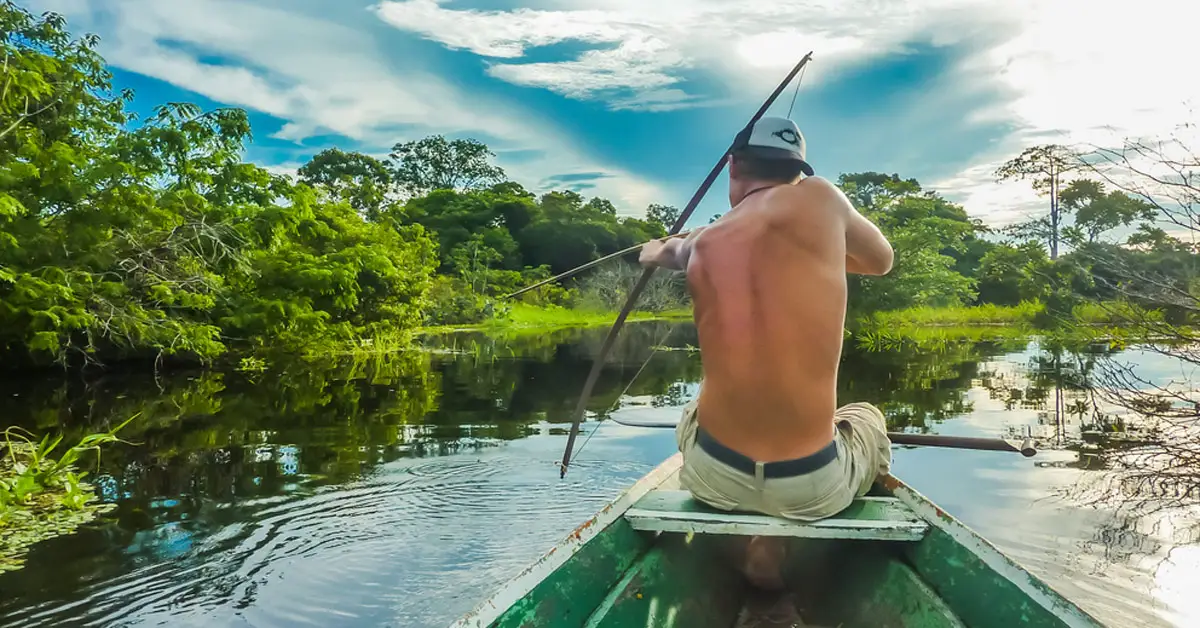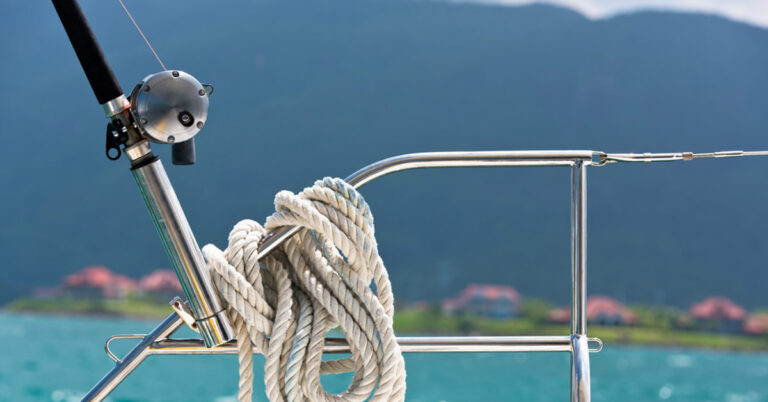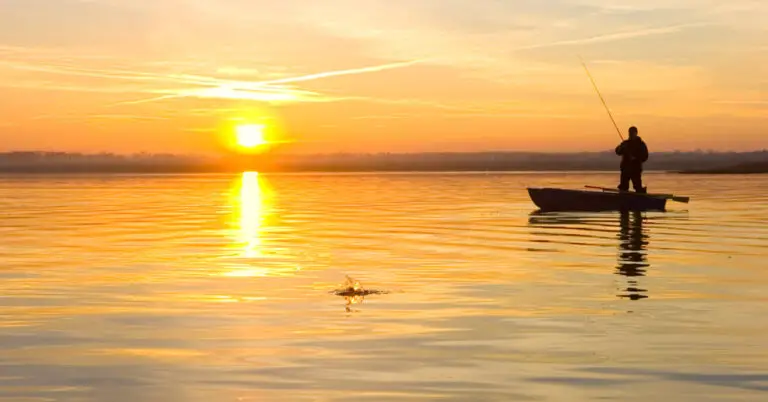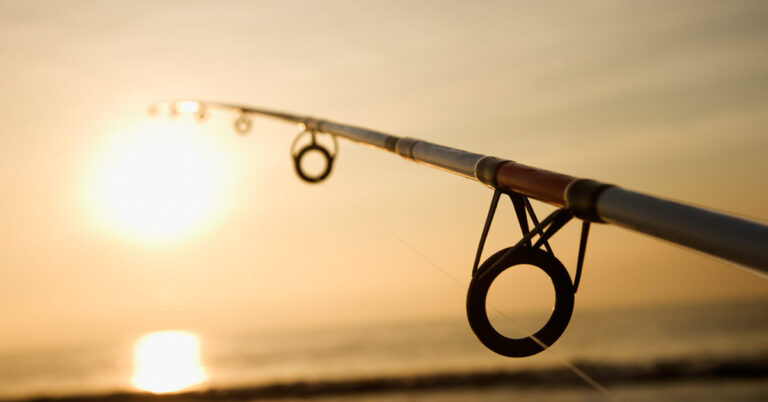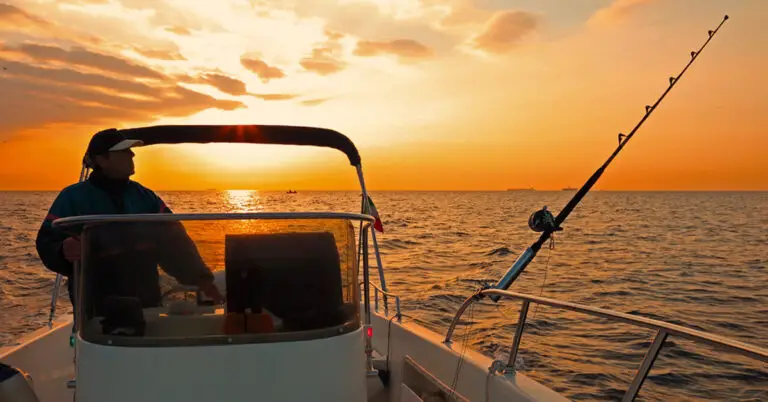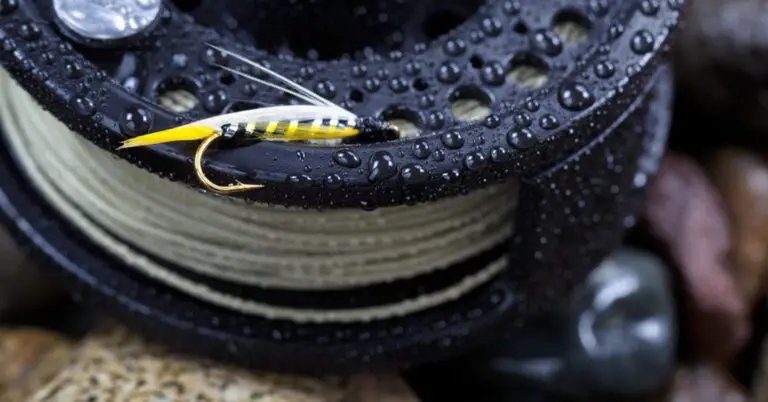Is Fishing a Form of Hunting? Exploring the Differences and Similarities
As an old soul who has spent countless sunrises and sunsets by the water’s edge, I’ve often found myself marveling at the intricate dance between man and nature that is fishing. It’s a practice as old as humanity itself, and yet, the thrill of the catch and the symbiosis with the environment all feel as fresh and invigorating as that first cast into the still morning waters.
The question, is fishing a form of hunting, has been whispered by the winds, murmured by the flowing rivers, and pondered over by campfires. It’s a question as deep and vast as the ocean, where the line blurs between the hunter and the hunted, inviting us to explore the differences and similarities between these ancient human practices.
Fishing can be considered a form of hunting. Both involve pursuing and capturing wildlife for food, sport, or trade. However, the methods and environments differ significantly, making fishing a distinct form of hunting.
There’s a certain camaraderie shared by those who’ve felt the surge of adrenaline that comes with a fish on the line or the heart-pounding anticipation of tracking prey through the wilderness. Whether you’re a seasoned angler, a dedicated hunter, or simply a curious observer, these experiences tap into something primal within us, something that bridges the gap between our modern existence and our ancestors’ survival.
Our journey to unravel the threads that connect fishing to hunting will take us through a world rich in tradition, culture, and a deep respect for nature. But before we dive into the depths or roam the wild, let’s pause, reflect, and appreciate the journey that awaits us. Ultimately, it’s not just about finding an answer but understanding the nuanced tapestry that makes up these timeless pursuits.
Tools of the Trade: Equipment in Hunting and Fishing
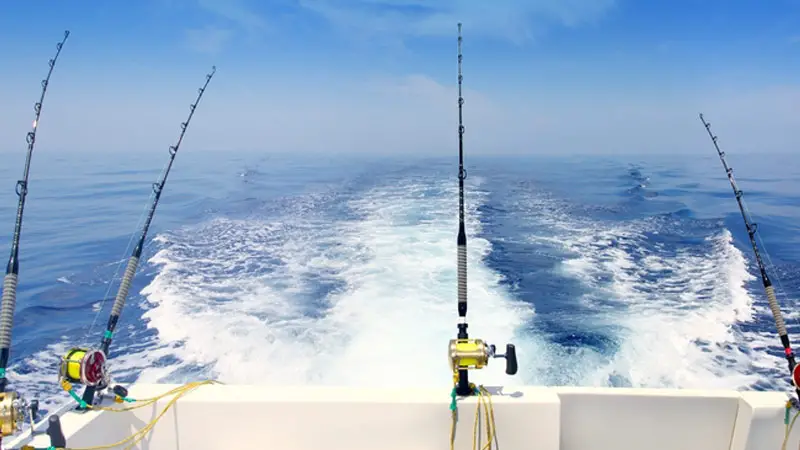
As a boy, I remember the thrill of handling my father’s old fishing rod, the smell of the tackle box filled with lures and hooks, and the weight of his hunting rifle. These were not just tools, they were time machines that transported me into a world of adventure and connection with nature.
It’s amazing how the equipment we use in hunting and fishing, while distinctly different, plays a crucial role in our pursuit of wildlife. They’re the silent partners in our journey, shaping our experiences and deepening our understanding of these ancient practices.
Hunting Equipment:
- Firearms: These include rifles, shotguns, and handguns. Each is designed for different types of hunting and varied distances. Ammunition is also a crucial consideration, varying based on the size and nature of the game.
- Archery Equipment: This comprises bows, such as recurve bows, compound bows, and crossbows, along with arrows. Archery hunting requires skill, precision, and patience.
- Hunting Knives: Used for skinning and field dressing the hunted animal. These knives come in various shapes and sizes, tailored to different game types.
- Camo and Scent Control: Hunters often wear camouflage clothing to blend into their environment and use scent control to mask their human smell from the prey.
Fishing Equipment:
- Fishing Rods and Reels: These vary based on the type of fishing. For example, fly fishing requires a specific type of rod and reel that differs from saltwater fishing.
- Fishing Line and Hooks: The strength of the fishing line and the size of the hooks depend on the species of fish being targeted.
- Bait and Lures: These are used to attract fish. Live bait, like worms or minnows, may be used, or artificial lures designed to mimic prey.
- Fishing Nets and Traps: Nets are used to secure the caught fish, while traps are used in some forms of fishing to simultaneously capture multiple fish or shellfish.
Reflecting on these tools, I realize how they’ve shaped my understanding of hunting and fishing, each piece of equipment a chapter in my lifelong journey with nature.
Skills and Techniques: The Art of Hunting vs. Fishing
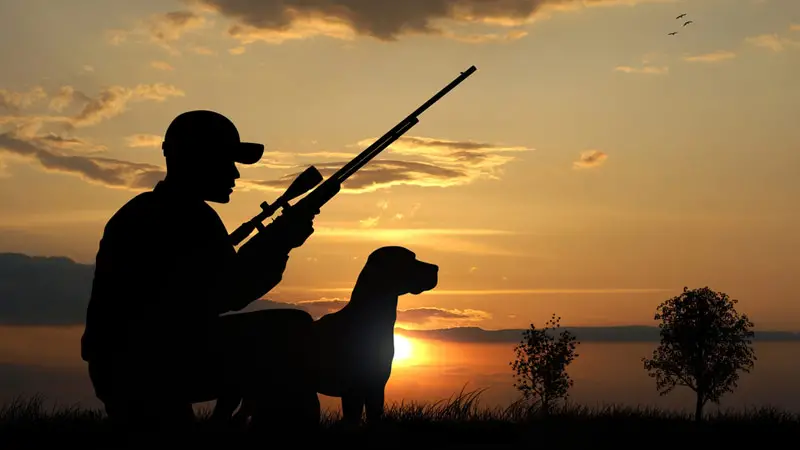
My old man, a seasoned hunter, and angler, once told me that skill is not something you’re born with but acquired through experience and perseverance. His words resonate with me today as I reflect on the distinct yet interconnected skills and techniques required in hunting and fishing.
Just as an artist molds his sculpture, a hunter or angler hones their craft, each with unique strokes. Hunting is an art of stealth, patience, and precision. I still remember my first hunting trip; the crisp morning air, the rustling of leaves beneath my boots, and the adrenaline-fueled stillness of waiting for the perfect shot. It taught me the value of understanding animal behavior, tracking, camouflage, and stillness.
The skills involved in hunting are deeply rooted in our primal instincts, requiring a keen sense of observation, knowledge of the terrain, and the ability to make quick, strategic decisions. On the other hand, the world of fishing offers a different canvas. Casting a line into the deep blue, you’re drawn into a serene yet unpredictable dance with nature.
The artistry here lies in understanding the aquatic ecosystem, knowing the habits of the fish, and mastering the techniques of casting, hooking, and reeling. The rhythmic motion of casting, the delicate balance of patience and action when a fish bites, and the triumphant joy of reeling in your catch – a ballet of man versus nature, a harmonious blend of skill, patience, and respect for the water’s depth.
Whether it’s the whisper of the fly rod or the call of the deep-sea reel, fishing, like hunting, demands a deep understanding and appreciation of nature’s intricate web. Each is a dance with nature, each a testament to our relationship with the wild.
Environment and Habitat: Land vs. Water
Growing up, I was blessed to have the untamed wilderness as my playground and the vast ocean as my mystery-filled backyard. The memories of my hunting expeditions on land and countless fishing trips at sea taught me early on about the distinctive environments and habitats these two activities require.
Each offers a unique set of challenges, opportunities, and memorable experiences. The land and the water are not merely silent stages for our hunting and fishing adventures; they are dynamic, active characters in our story.
Land Environments for Hunting:
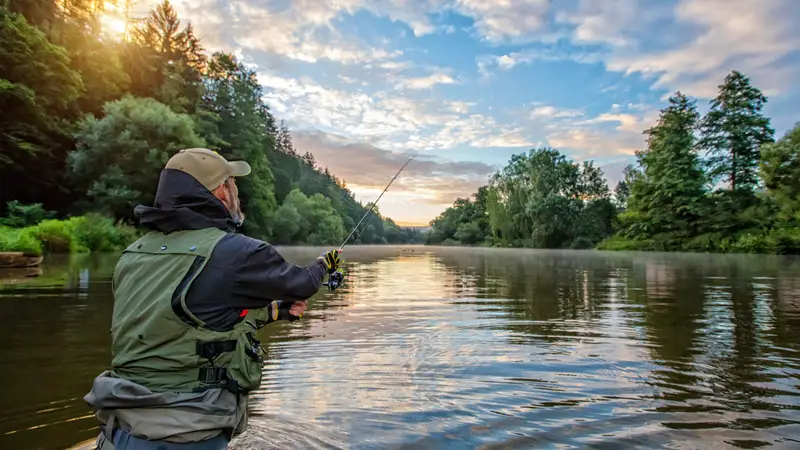
- Forests: Dense forests, like those I played in as a child, serve as perfect hunting grounds, offering plenty of covers and abundant wildlife.
- Plains and Grasslands: Wide open spaces like plains and grasslands allow larger animals to roam, making them ideal for hunting big game.
- Mountains: The rugged terrain demands a certain fitness level and knowledge of the area. The thrill of hunting in such challenging conditions is unmatched.
- Swamps and Wetlands: Hunting in swamps and wetlands offers unique challenges and a diverse range of game species.
Water Environments for Fishing:
- Freshwater Lakes and Rivers: My first fishing lessons were by quiet, gurgling streams and tranquil lakes. They are teeming with various fish species, each demanding different fishing techniques.
- Saltwater Ocean and Seas: Fishing in the open sea adds an extra layer of excitement and challenge with its vastness and unpredictability.
- Estuaries and Mangroves: These are rich, diverse habitats where freshwater meets saltwater, offering various fish species.
- Ice Fishing: One of my most memorable fishing experiences was ice fishing in the heart of winter, a test of patience and resilience.
Whether on land or water, the environment becomes more than a backdrop for hunting or fishing—it becomes a teacher, a guide, and a companion in our adventures. The more we understand and respect these habitats, the more rewarding our experiences become.
Sport or Survival? The Modern Perspectives on Hunting and Fishing
I recall my grandfather recounting stories of his youth when hunting and fishing were not just weekend pastimes but essential for survival. His tales vividly depicted our ancestors’ bond with nature, a relationship woven with threads of necessity and respect.
Yet, as I look at our modern world, where supermarkets and restaurants have replaced hunting and gathering, I can’t help but wonder about the shifting dynamics of these age-old practices. Today, for many of us, hunting and fishing have become more about sport, conservation, and connecting with our roots rather than survival.
While the thrill of the hunt or the patience-testing tranquility of fishing continues to draw enthusiasts, the underlying motivations have undeniably evolved. For some, it’s about testing their skills against the wild, reclaiming a sense of primal self-reliance in an increasingly digital, disconnected world.
For others, it’s a means of conservation, of maintaining a healthy balance in wildlife populations. And then there are those like me, who find in hunting and fishing a way to connect with our past, to understand our ancestors’ struggles and triumphs, and to keep alive the stories and traditions that have shaped us.
As we navigate these modern perspectives on hunting and fishing, it’s important to remember that whether it’s for sport or survival, our actions must be guided by respect for nature and a commitment to preserving it for generations.
Fishing as Hunting: A Final Comparison
As I cast a backward glance at the winding path that brought us here, I realize that the question – ‘Is Fishing a Form of Hunting?’ – has no simple answer. It’s like the intricate knots on a fishing line or the complex patterns of a forest; they are different yet interconnected.
From my childhood days of marveling at my father’s prowess in handling a fishing rod and a hunting rifle to my journey through the wilderness and across the water, I’ve seen fishing as a distinct form of hunting.
And in the end, isn’t that what hunting, in any form, is all about? It may not involve stalking prey through dense forests or listening for the faintest rustle of leaves. Still, it’s a hunt that challenges us in different ways, teaches us different lessons, and helps us form a unique bond with nature.

